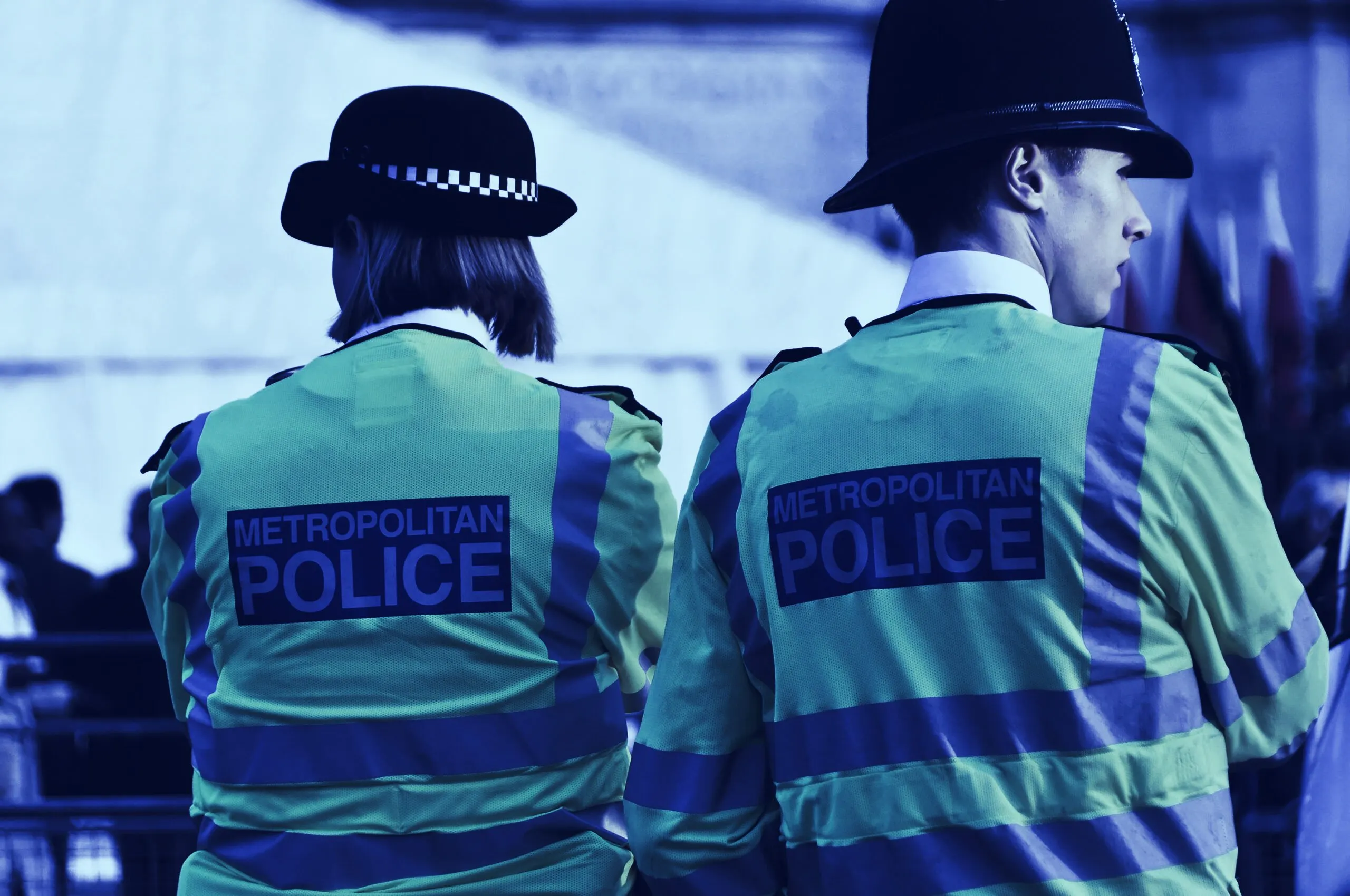Police are finally catching on: some criminals love cyptocurrencies. Or so says the UK’s City of London police department, which in August will start teaching cryptophobic officers how to trace dirty money across the blockchain.
While forces worldwide are stepping up their efforts to track cryptocurrency and expose its principal abusers, the UK police department is the first to introduce a hands-on practical training program for rank-and-file officers. Others have been less ambitious; for its part in the war on crypto-crime, EU law enforcer Europol has run a “two-day workshop.”
The City of London course, authorized by the Economic Crime Academy, will kick off with the basics, teaching officers “what cryptocurrencies are” and “how they work,” says Tom Keating, a spokesman for the City of London police. Following that, Keating said, it will cover the broad spectrum of crypto-technology.
Keating said City of London Police established the course when officers started to realise the extent of cryptocurrency-related crime: ActionFraud, the UK’s national fraud and cyber-crime reporting center, found that 1,319 reports of crimes relating to cryptocurrency were made between January 2016 and December 2017, with monthly alerts increasing from 17 to 167 between January 2016 and December 2017. Interpol, meanwhile, said that three to four percent of illegal funds were laundered through cryptocurrencies.
A new type of criminal
But it’s not as if forces are failing miserably; law enforcement teams have demonstrated some knack for tracing cryptocurrencies. Just last month, police in Surrey, the UK, seized £1.25 million worth of drug money from a Latvian dealer—all in bitcoin. The money was stored on a device they found while searching through his flat.
Earlier that same month, US authorities confiscated $20 million worth of cryptocurrency, leading to the arrest of 35 people. Through their efforts, which spanned several arms of the US government, the authorities were able to purge an entire criminal network from the illegal “darknet,” a known sinkhole for dirty money. But their efforts barely dented criminal monopolies in the darknet, which received $660 million in bitcoin alone in 2017, according to a report by Chainalysis.
The training should help. Awareness of how cryptocurrency works—as well as its limitations—can make investigative work easier. “There is now a complete record of all the transactions that occur in certain cryptocurrencies,” Keating explained, “whereas usually tracing cash is very resource intensive and banking transactions require a court order.”
The biggest obstacle to investigation, however, is that cryptocurrencies—at least when viewed on the blockchain—are almost completely anonymous. A handle like “xx354v65vHF9c,” for instance, is unlikely to ring many bells. Unless the City of London police department is also teaching clairvoyance, UK forces might not bring down the entire cryptocurrency underworld just yet.
Read Next: Gabby we hardly knew ye

